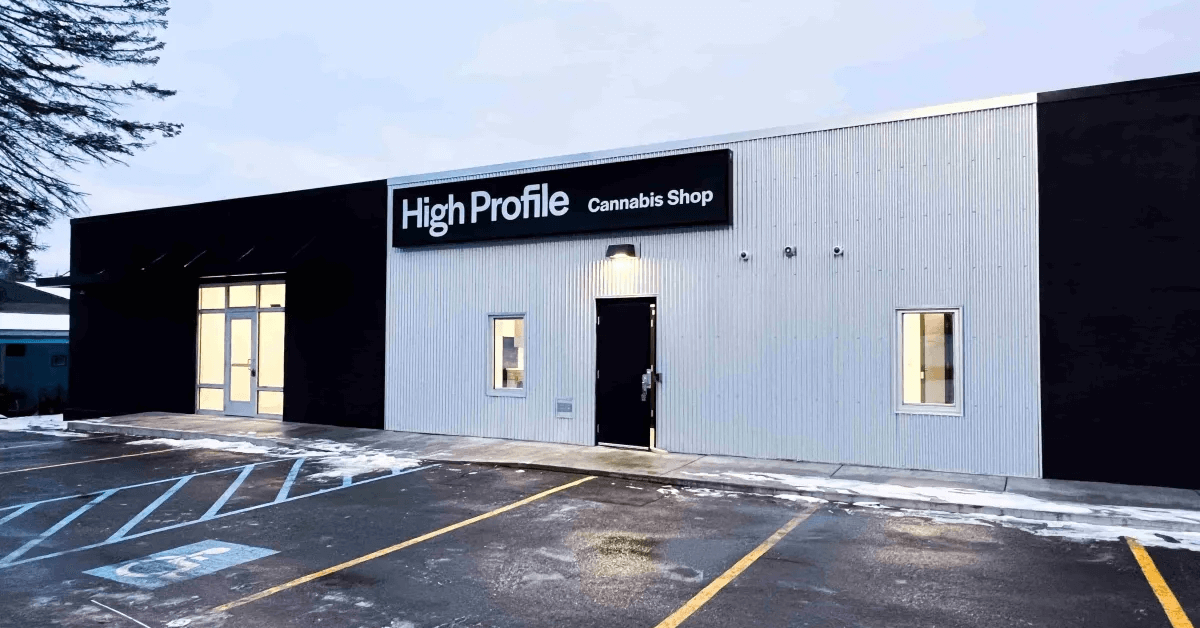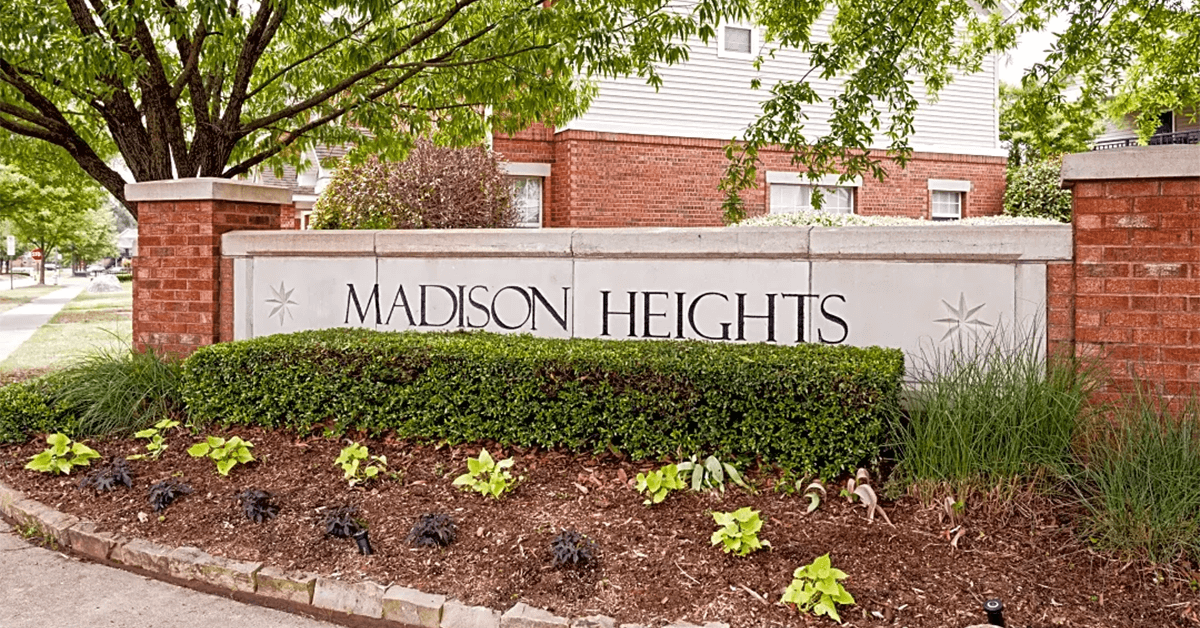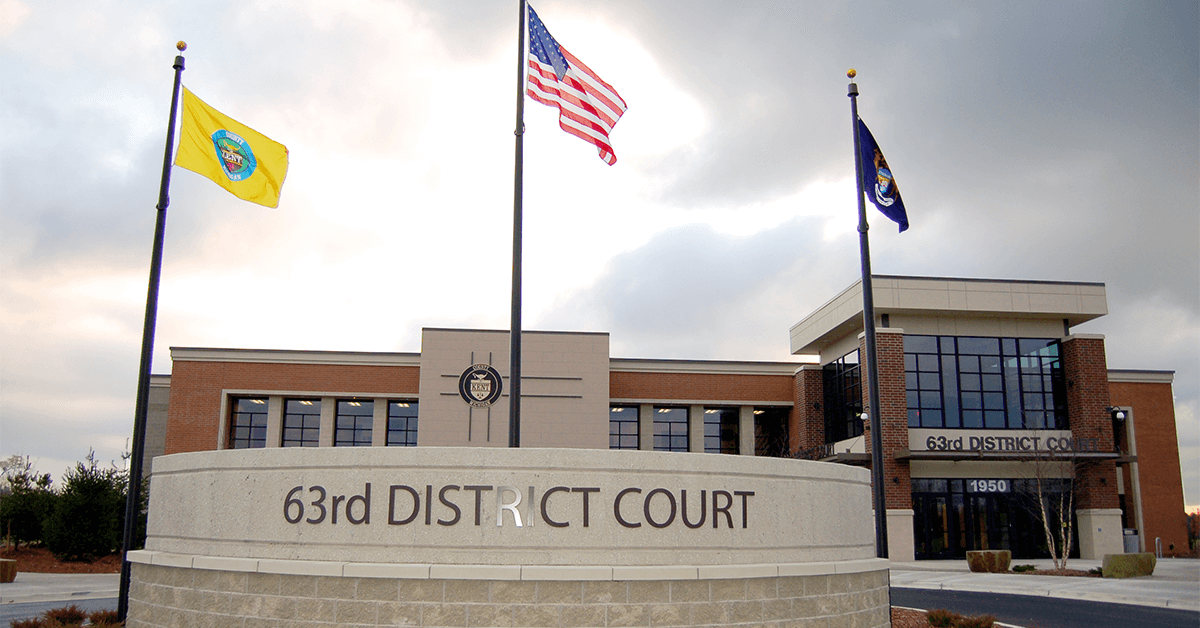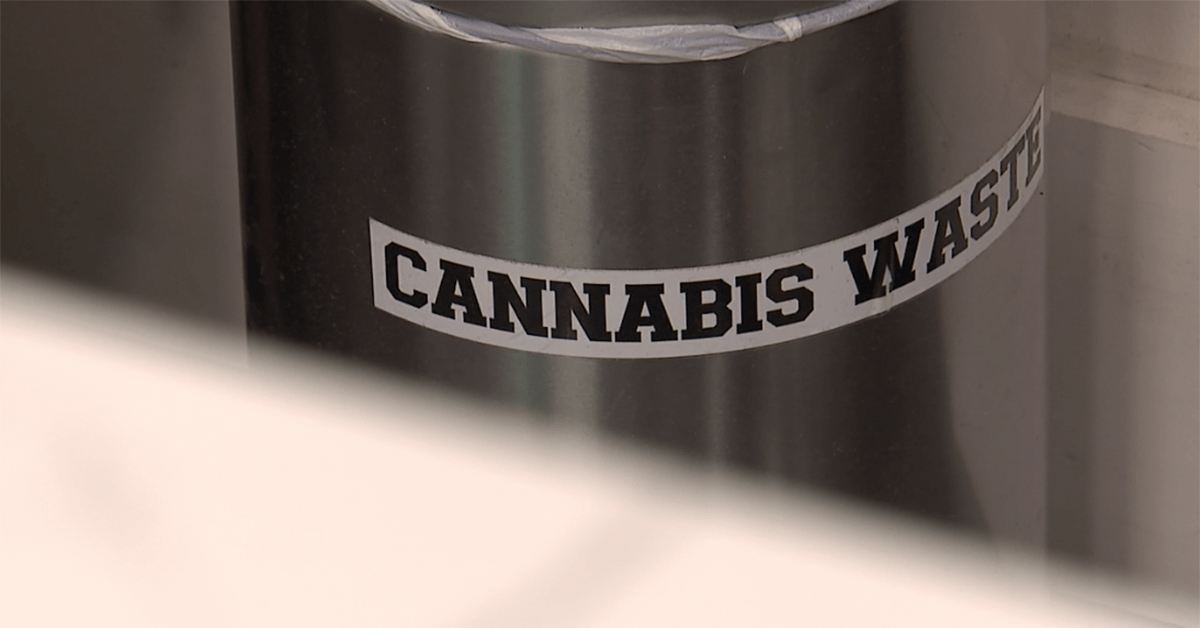New Cannabis Retail Store Opens in Ironwood by C3 Industries

C3 Industries, an Ann Arbor-based cannabis company, has recently inaugurated its latest dispensary, High Profile Ironwood, marking the 22nd retail outlet in its nationwide portfolio and the 11th within Michigan. The grand opening of this new location is scheduled from Friday, February 9th, continuing through the Super Bowl weekend, aiming to provide a festive launch to its operations.
Situated at 100 West Cloverland Drive in Ironwood, this newly opened dispensary is strategically located in an area celebrated for its scenic natural landscapes, encompassing forests, lakes, and a plethora of outdoor activities. C3 Industries expresses enthusiasm for its new venture in Ironwood, highlighting the locale's environmental allure as a significant draw for customers. The company is keen on offering daily discounts to a wide array of customers including seniors, veterans, medical cardholders, as well as college students and staff, ensuring a broad community benefit from its services.
Ankur Rungta, CEO and co-founder of C3 Industries, articulated the company's excitement about expanding their footprint in Michigan and across the nation. "This store addition reflects our commitment to serving communities all over the great state of Michigan," Rungta stated. He further emphasized the goal of broadening access to premium cannabis products and enhancing customer experience, alongside contributing to the cannabis industry's growth and positive evolution in the future.
The High Profile Ironwood dispensary operates daily from 9:00 a.m. to 9:00 p.m., offering an extensive range of cannabis products. These include flower, pre-rolls, edibles, concentrates, vape cartridges, tinctures, topicals, and accessories, featuring C3's proprietary cannabis brand, Cloud Cover, and their everyday product lines like Galactic, which encompasses flower, concentrates, vape cartridges, and gummies.
In addition to product offerings, High Profile Ironwood introduces an engaging loyalty program, the High Roller Loyalty membership, which rewards customers for their purchases with points that can be redeemed on future visits. New members receive an immediate bonus of 50 free points upon signing up and enjoy various benefits such as early access to special events, referral bonuses, double points on Tuesdays, and exclusive members-only discounts.
Further enhancing customer convenience, High Profile Ironwood supports online ordering with options for inside drive-thru and curbside pickup. New customers are welcomed with a 20% discount on their first purchase and a complimentary product on their subsequent visit, encouraging community engagement and recurrent patronage.
Madison Heights City Council Approves Additional Cannabis Establishments

Madison Heights City Council, in a closely contested decision, has opted to expand its cannabis licensing framework, accommodating two additional companies, Arctic Fox LLC and 305 N Euclid LLC, which had previously faced rejection. This move comes as a strategic measure to avert the financial and resource strains of ongoing legal confrontations.
In an unexpected turn during the council session on January 22nd, Councilman David Soltis shifted his stance from opposition to approval, tipping the scales to a 4-3 majority in favor of resolving the lawsuits initiated by the two companies. This pivotal decision also led to a revision in the city's ordinance, raising the cap on marijuana establishment licenses from three to five. It's noteworthy that this adjustment comes with a provision that should any of the licensed establishments cease operations, the city is not obligated to reissue the vacated licenses.
The council's vote mirrored its previous deliberations on November 16th, 2023, with Mayor Roslyn Grafstein, Mayor Pro Tem Mark Bliss, and Councilman Sean Fleming maintaining their supportive votes, while Councilwoman Emily Rohrbach, Councilman Quinn Wright, and Councilman Bill Mier stood by their opposition. The legal challenges brought forth by Arctic Fox and 305 N Euclid were rooted in allegations of unfairness in the city's licensing process.
Soltis, reflecting on his decision, acknowledged the complexity of balancing principle with the practical implications of legal expenses on the city and its residents. The settlement with Arctic Fox and 305 N Euclid not only resolves the litigation but also introduces them as community stakeholders, with both companies agreeing to substantial financial contributions to the city and ongoing community support.
The specifics of when these establishments will commence operations remain uncertain. However, their proposed locations and developmental plans suggest significant investments in property renovation and community integration. Arctic Fox aims to establish its footprint at the former Mac's Party Store location, with plans for extensive renovations, while 305 N Euclid is set to develop Dispo Cannabis at a site on Dequindre Road.
The settlement terms outline a financial framework where each company will make a one-time payment of $175,000 to the city, exceeding the initially discussed $150,000, alongside annual contributions to a community fund and a share of net profits. This arrangement also entails commitments to public safety and operational transparency, including the installation of camera systems accessible to local police.
This resolution has sparked a mix of reactions among council members, with some expressing concerns over community values and the impact of increasing cannabis establishments on the city's fabric. Yet, proponents like Mayor Grafstein and Mayor Pro Tem Bliss highlight the financial rationale and the broader benefits of integrating these businesses into the community's economic and safety strategies.
The decision reflects a nuanced approach to cannabis regulation, balancing legal, economic, and community considerations. It underscores the evolving dynamics of cannabis policy at the local level, mirroring broader trends in Michigan's legal cannabis sector, which has witnessed significant growth and regulatory challenges.
Introducing Field of Greens: A Trailblazing Venue for Cannabis and Music Lovers

In Michigan, where recreational cannabis is legally consumed, music venues have traditionally navigated a complex landscape, largely due to the intertwined regulations surrounding liquor licenses. However, a pioneering approach by the organizers of the state's Cannabash music festival may soon change the game. They aim to launch what is anticipated to be the United States' first music venue to legally sell and allow the consumption of both alcohol and cannabis.
Field of Greens, an outdoor concert space in Baldwin, is set to open its gates this spring, according to Grams & Jams Productions. This innovative move is a direct response to the longstanding practice of concertgoers indulging in either alcohol or cannabis during events—a reality that the organizers are keen to embrace and formalize within the regulatory framework.
"The concept isn't new—people have been enjoying music with their preferred choice of legal intoxicants for decades," Connie Maxim-Sparrow, co-founder of Grams & Jams Productions, shared with Metro Times. She highlighted the ubiquity of cannabis use at concerts, using Pine Knob's live music events as an example of where attendees regularly smoke weed.
The journey towards this groundbreaking venture was partly inspired by the success of the Cannabash festival, which since its inception in 2022 at Muskegon's Softball World grounds, has rapidly grown in popularity. With a lineup that included notable performers such as Ludacris and Sada Baby, the 2023 festival attracted 12,000 attendees, underscoring the public's enthusiasm for such events.
The decision to develop Field of Greens was driven by logistical challenges and municipal restrictions encountered at previous venues. Partnering with Baldwin Provisions, a local cannabis dispensary situated on a 30-acre site, offered a solution. The chosen location, once a gun and driving range, provides the necessary infrastructure for large events, including power, lighting, and fencing. Moreover, its proximity to Idlewild, a historic African American vacation spot, adds cultural and historical significance.
To navigate the legal complexities of selling and consuming alcohol and cannabis in the same venue, Grams & Jams Productions plans to split the venue with a fence, designating separate areas for each substance. This arrangement will be complemented by a temporary 24-hour liquor license obtained through the organization's nonprofit division, ensuring compliance with state regulations.
Maxim-Sparrow views this innovative model as a step towards more pragmatic regulations in the future, envisioning Field of Greens as a trailblazer for the music industry's integration with cannabis events. With plans for the venue to accommodate up to 15,000 people, there are ambitions to expand and formalize the space, drawing inspiration from successful venues like the Meijer Gardens Amphitheater in Grand Rapids.
The inaugural season at Field of Greens promises a diverse lineup of events catering to various musical tastes and demographics. From the rock and blues-focused Bikes, Buds, and Brews, aligning with Baldwin's Blessing of the Bikes, to the mainstream allure of Grams & Jams Country Night, and the return of Cannabash with its hip-hop and rock repertoire, the schedule is designed to celebrate music and cannabis culture alike.
- Bikes, Buds and Brews - May 18th 2024, 1:00 PM - 10:00 PM
-
Bringing over 55,000 motorcycle enthusiasts to Baldwin, Michigan to celebrate the start of bike season. Enjoy cornhole and midget wrestling, finish the night off with some rythmn and blues on the Field of Greens Mainstage.
-
- Grams & Jams Country Night - June 14th 2024, 2:00 PM - 10:00 PM
-
Expect 4,000 of your closest cannabis enthusiasts for an evening of country music and good times.
-
- Cannabash - July 13th 2024, 3:00 PM - 10:00 PM
-
Celebrate the culture and community of cannabis as this festival's 3rde annual installment. Anticipate music from the nation's top artists focusing on rock, county, and hip hop as only Cannabash does.
-
- Grams & Jams Bluegrass Night - August 23rd 2024
-
Expect 4,000 of your closest cannabis enthrusiasts for an evening of blue grass and good times.
-
- Croptoberfest - September 21st 2024
-
Join us as we celebrate the harvest of 2024, close the season out with a bang!
-
As Grams & Jams Productions moves forward with selling tickets and seeking sponsorships, the message is clear: cannabis culture deserves recognition and its rightful place in the public sphere.
Michigan's Marijuana Industry Grapples with Potency Testing Integrity

In Michigan's bustling marijuana industry, the quest for higher THC potency has not only influenced consumer preferences but also raised concerns about the integrity of potency testing. Industry insiders and regulators have voiced worries about the potential manipulation of THC test results, which are pivotal in determining the price and profitability of marijuana products across the state.
The significance of THC potency in setting prices has led to suspicions of unethical practices among some testing labs and marijuana producers. Allegations suggest a "pay-to-play" scheme, where higher potency figures are reported in exchange for financial benefits, disadvantaging labs committed to accurate testing.
Ben Rosman, co-founder and CEO of PSI Labs in Ann Arbor, one of Michigan's first licensed marijuana safety testing facilities, observed firsthand how prioritizing accuracy in test results could negatively impact business. PSI Labs, known for its commitment to reliable data, ultimately closed its doors after eight and a half years, underscoring the challenging dynamics between accuracy and market demands.
The phenomenon of "lab shopping," where producers seek out labs that report higher THC levels to remain competitive, highlights a systemic issue within the industry. Despite the common knowledge among budtenders and retailers that THC potency is not the sole indicator of marijuana's effects, consumer behavior indicates a strong preference for higher potency products. This trend has led to an increase in strains boasting THC levels above 28%, while those with lower potency struggle to find a place in the market.
David Egerton, laboratory manager at Infinite Chemical Analysis Labs in Jackson, Michigan, has encountered direct requests from customers seeking inflated potency results, emphasizing the pressure labs face to retain clients by bending the rules.
The closure of PSI Labs and the challenges it faced in maintaining a commitment to accurate testing reflect a broader issue within the cannabis industry: the cycle of potency inflation. This cycle perpetuates the demand for higher THC levels, encouraging producers to seek out labs that will report such results, ultimately compromising the integrity of the testing process.
A study examining THC potency accuracy in Colorado's marijuana market revealed that a significant portion of tested samples had potency levels more than 15% lower than stated on packaging, suggesting that potency inflation may be a widespread problem in the U.S. cannabis industry.
In Michigan, the Cannabis Regulatory Agency (CRA) has taken steps to address concerns about THC potency testing, particularly focusing on the practices of Viridis Laboratories. The CRA's investigations and ongoing legal battles with Viridis highlight the complexities of standardizing testing methods and ensuring accurate results.
The CRA plans to open a state-run lab by the end of 2024, aiming to audit private lab results and contribute to the development of standardized testing procedures. However, achieving lasting change in the industry may require more than regulatory oversight and the establishment of reference labs. Stakeholders like Rosman believe that legal actions, similar to lawsuits filed in California over potency inflation, might be necessary to prompt significant reforms.
As Michigan's marijuana market continues to evolve, the challenges surrounding THC potency testing underscore the need for a balanced approach that ensures consumer safety and confidence while fostering a competitive and ethical industry.
Tragic Infant Death Linked to Substance Use; Mother Faces Charges in Kent County

In a distressing incident in Kent County, a 2-month-old infant tragically lost his life, leading to serious charges against his mother. Jennifer Louise Mast, 39, was arraigned on charges of involuntary manslaughter and second-degree child abuse on January 31st at the 63rd District Court in Kent County.
This case, which has garnered significant attention, stems from a Kent County Sheriff's Office investigation in 2023. The critical events unfolded in the early hours of August 25th, when sheriff's deputies received an emergency call about an unresponsive infant at a residence in Solon Township.
Upon arriving at the scene around 6:38 a.m., deputies immediately noticed a strong odor of burnt marijuana within the house. Additionally, visible marijuana paraphernalia and an empty vodka bottle on the dining table were reported, as detailed in an affidavit of probable cause for complaints.
During the on-scene investigation, detectives interviewed Mast. She disclosed consuming alcohol, including two mixed vodka drinks and a shot, and admitted to smoking marijuana shortly before retiring to bed. At that time, Mast stated, the baby was already asleep in his bouncy seat.
The sequence of events as recounted by Mast indicates that she attended to the baby later in the night, feeding and changing him, before laying him in bed with her. The next morning, the baby's father, who was also in the home, woke up Mast as he prepared for work. It was then that Mast discovered the baby was unresponsive. Despite immediate CPR attempts by Mast and subsequent emergency response efforts, the baby could not be revived.
The Kent County Medical Examiner's Office determined the cause of death to be asphyxiation by suffocation.
Following these tragic events, Mast is scheduled for further court appearances, including a probable cause conference on February 14th and a preliminary examination on February 21st. She has been released on bond as of the afternoon of January 31st.
Michigan's CRA Emphasizes Strict Marijuana Waste Disposal Protocols

In response to reports of unauthorized removal of discarded marijuana products from facility dumpsters, Michigan's Cannabis Regulatory Agency (CRA) issued a reminder to licensed cannabis businesses about mandatory waste disposal practices. This directive emphasizes the need for marijuana products and plant waste to be rendered unusable and unrecognizable, adhering to strict disposal methods.
The CRA outlines that marijuana waste should be disposed of in a secure waste receptacle and can only be processed by:
- Licensed municipal solid waste landfills
- Registered composting facilities with specific approval for marijuana waste
- Approved anaerobic digesters
- Permitted municipal solid waste or hazardous waste incinerators within Michigan
Nick Hannawa, Chief Legal Counsel of PUFF Cannabis Company, which operates 10 locations in Michigan, elaborated on their rigorous disposal procedures. The process involves breaking down the waste product (expired or damaged) using substances like vinegar, cat litter, and sometimes cement, to ensure it is unrecognizable. This process is thoroughly documented and reported to the state. A specialized waste management company is then tasked with the off-site disposal of these materials.
Hannawa emphasized the importance of adhering to these regulations, highlighting the potential risks of improperly disposed marijuana products, such as accidental consumption by children or individuals not authorized to possess them. The intricate disposal process, though laborious, is essential for compliance with state laws and ensuring public safety.
Michigan's CRA's reinforcement of these disposal guidelines underscores the importance of responsible waste management in the cannabis industry, reflecting the state's commitment to public health and safety, as well as environmental stewardship.


 Helpful Links
Helpful Links